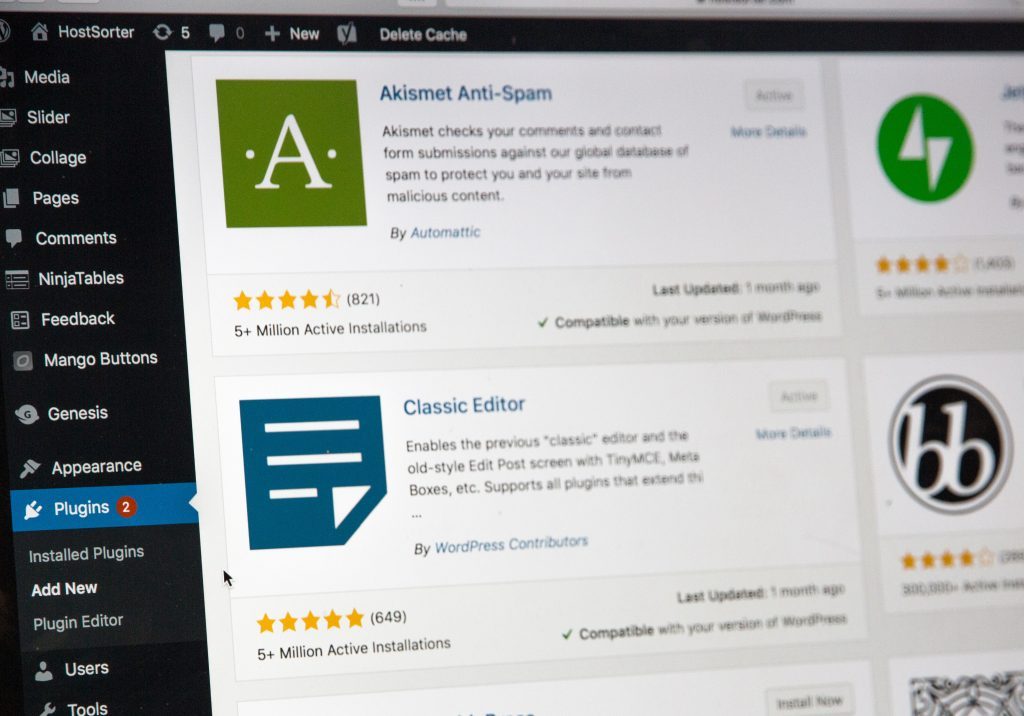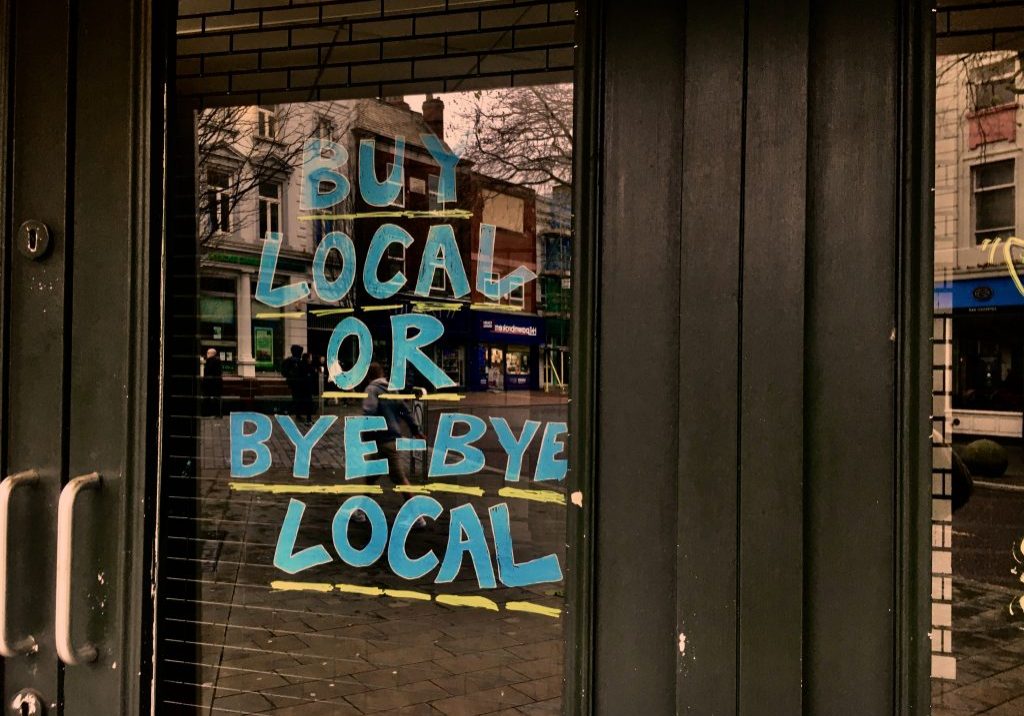Why All The Fuss About Search Engine Optimisiation?
SEO, or Search Engine Optimisation, to give it it’s full, grandiose sounding name, is all about matching your website up with customers, using search engines such as Google and Bing. The theory is, if your site can show in search engine results pages (SERP’s) for keywords relevant to your business, you’ll attract traffic via clicks. The higher up you are in ranking, the more clicks you’ll get, especially if you’re lucky enough to get your website ranking on page one of results!
In simple terms:
Customer> ‘Google’s’ Your Services> Google Displays Results> Your Website In Results> Customer Clicks Your Website In Results> Customer Is On Your Website> Customer Converts> Profit
These days, SEO is a staple of any solid digital marketing strategy and for very good reason. We may be biased (we are a leading SEO Agency, after all,) but we’re of the opinion that SEO pretty much trumps all other channels, including Social and PPC. Why? Well, it offers so much! Let’s not beat around the bush though, we’re making pretty bold statements here and you’re probably wanting some solid evidence; no problem! Here’s 12 benefits of SEO:
SEO Drives Excellent Traffic
What better traffic than those actively seeking your products or services? Both SEO (and, in the interest of clarity; PPC) only drive traffic to your site from Search Engine Results, including Google and Bing; and how do users get there in the first place? By using search engines!
By optimising your site for specific keywords, thereby showing in respective results you’ll ultimately attract high quality traffic.
SEO Delivers Leads
What happens when you attract high quality, targeted traffic? You ultimately deliver leads. After all, if a potential client or customer is actively searching for your products or services why wouldn’t they contact you?
Unlike more speculative channels, such as Social Media and display advertising, which do have their place, SEO delivers intent focused traffic, provided you optimise your site properly.
When you’re putting together an SEO strategy, don’t be scared of targeting buyer intent keywords, they’re the ones that will really drive leads.
SEO Offers Pin Point Measuring
As with all things digital, SEO offers some of the most comprehensive metrics out there, far outshining anything regular marketing can offer.
Using a combination of Google Search Console and Google Analytics you’re armed with a total plethora of information, including:
- Impressions (how many people have seen your website in their Google results)
- Clicks (how many people clicked your website from their Google results)
- Average Click Through Rate (what percentage of people click through from Google results)
- Average Session time (how long people stay on your website from Google results)
- Keyword Ranking (where your website sits in results for any given search)
- Conversions (the daddy of all metrics, how many leads, sales or enquiries you’ve driven through organic results)
SEO Is Never Switched Off
Paid Advertising, especially Google Ads definitely deliver instant impact, but what they offer in quick return, they lose in ongoing delivery.
SEO can’t be ‘switched off’, which means the shelf life of your efforts are much longer.
If your site is ranking strongly for favorable terms, it will continue to do so, long after you down tools. PPC on the other hand, needs a constant budget to remain effective, the minute you pause your ads your lead funnel dries up.
This means that SEO can deliver longer term traffic at any given time of the day. Once you rank for a term, you rank for it all day, every day. Until someone comes to dethrone you, of course.
SEO Works At All Steps Of Your Funnel
Apparently customers need to see something 7 times for it to stick, not with SEO they don’t. Unlike other marketing channels, SEO is all about customers coming to you, searching for your products or services no matter which step of the funnel they’re at.
The trick is, to make sure you have pages ranking for every step of their journey, from initial consideration, right down to when they’re ready to buy. Incidentally, you’re reading this because you’re thinking about SEO, you haven’t ended up here by accident, right?
Targeting SEO Through The Sales Funnel
When you’re putting a Search Engine Optimisation strategy together for your business, think about the content and pages you’ll need, to inform a potential customer along the way, including what sort of questions they may have. Which, no doubt, they’ll search using Google.
For example, you may need to compare two or more products, so that a potential customer can decide which is right for them at the consideration stage. Follow this up by focussing on the benefits of one product so you can reach them organically at the evaluation stage. Finally, remember to include keywords with buyer intent, such as ‘buy now’ and ‘next day delivery’ to really maximise conversions from SEO.
SEO Converts Like Nothing Else
Sometimes paid advertising can be speculative, especially if you’re trying to build a brand. In a lot of cases, there’s plenty of spending and not much selling; not so with SEO.
Sure, other channels have their place, PPC is the right option if you need overnight success, Paid Social Media offers the most bang for your buck if you’re looking to reach a wide audience, but SEO delivers the cold, hard cash.
When your website ranks for important keywords related to your business or services, you’ll see a steady stream of conversions coming through; guaranteed. Basically, SEO is the only channel out there which actively puts your business in front of customers looking for your business.
SEO Boosts Your PPC
Google themselves have found that strong organic rankings will boost your PPC clicks, incrementally by up to 89% with further research showing that, oddly enough, PPC can boost your organic rankings too! All in all, a strong SEO and PPC strategy combined will ultimately buy up prime real estate on Google’s page one, pushing out competition and driving quality traffic to your site.
SEO Helps Beat The Competition
Not everyone can be number one and, the sad reality is, if it’s not you, it’s your competitor. Using SEO not only helps to promote your site, it also helps to displace the competition, by pushing their site further down the Google pecking order.
Improving your keyword rankings using SEO helps to buy up important real estate on Search Engine Results Pages (SERP’s) and, if you’re really clever, you can even target rich and featured snippets that boost your listing.
What Are Featured Snippets?
A featured snippet is an excerpt of text which is automatically pulled from a website or web page (hopefully yours!) to directly answer a question in search engine results. They are displayed at the very top of Google results, before any other organic listings, or, as it’s sometimes known; Google Position Zero.

What Are Rich Snippets?
Rich snippets are similar to ‘normal’ listings, but with a little extra information added into the mix. This can include reviews or star ratings for products, times for booking or stock levels of an item. Generally, rich snippets have a higher click through rate than ordinary results, so you’re going to really hammer the competition if you can get some.

SEO Helps Boost Your Customer Perception
Inevitably, customers put more trust in businesses that rank highly on Google. We’ll not bore you with the details, but it’s actually part of the ranking algorithm.
SEO Reduces Your Marketing Costs
Once you’ve built up a strong SEO foundation for your site you can afford to reduce advertising spend on Google Ads and (in some cases) social media too.
SEO Targets Everyone
Again, SEO deals in customer search, nothing more, nothing less. So, no matter who is searching, if your site ranks for that particular term, it will show in results. Google doesn’t really care about your customer demographics, they’re all about delivering the right page to the right search.
Think about one of our services as an example; web design. Do we want people to find our site when they’re looking for a new website? Of course we do! Do we care what they look like, how old they are, what job they’re in, what they had for breakfast or anything else? Not really! That’s why we work on our SEO, to make sure our site shows, as highly as possible, when anyone Google’s ‘web design Sheffield’.
OK, sometimes we do care about what they do, we have a lot of experience in the construction sector for example, so we’re keen to work with more clients in this field. No biggie, with SEO we can target those terms to, which is why we also try to rank for stuff like; ‘web design for construction businesses’ and ‘websites for builders in Sheffield’.
With SEO, the options are endless; target high volume, generic terms, or focus on niche, highly converting long tail keywords, or both, it’s up to you.
SEO Offers Long Term Success
SEO results are usually exponential, meaning, once you gain a bit of momentum you should experience a snowball effect for your site.
The Wrap Up
At Convert Digital, in case you haven’t noticed, we’re big fans of SEO, we mean, HUGE. It’s possibly our favourite, long term channel for driving quality traffic and leads. But, there is a catch, frankly, SEO is hard work and results can take several months, as search engines such as Google and Bing take time to properly index pages and decide on rankings.
That said, if you’re business undertakes a solid SEO strategy, the rewards can be brilliant. Just take a second to image your business was #1 on Google for your product or service, how would that impact your bottom line?
So what does a ‘solid SEO strategy’ actually look like? Well, we like to think it includes a few factors:
Firstly, you’ll need to be realistic, planning exactly what’s going to happen, when and why. We know it’s a cliche but consider adding SMART goals to your strategy, so you can actively work towards a specific increase in keyword rankings, organic traffic, conversions or a mixture of all three. For instance, you may wish to ‘improve number of page one ranking keywords by 20%, within 6 months’ or ‘increase organic traffic by 200% within 12 months’.
From this, you’ll need to drill down on the details, so you have an idea of what sort of work you’ll be doing each month. We recommend a simple Google Sheet, or Excel Spreadsheet if you’re operating in 1992, which you can populate with ‘SEO tasks’ such as registering local citations, writing ongoing content, outreach or on page updates. Once you have this underway, it’s really just a case of getting stuck in and making sure things get done.
Secondly, you’ll need to finesse your targets, balancing high volume keywords with easier to win targets. Full disclosure: this part takes practice! Identify keywords you’d like your site to rank for, whilst being realistic with what your SEO efforts and budget can achieve; will you really monopolise that highly competitive, 10000 search a month generic keyword? Or is it more prudent to look for a niche and drive traffic from there?
Speak To Us First!
If you’re thinking of putting a strategy together, we’ve got plenty of resources that we’re happy to share, just drop us a message using our WhatsApp chat! Thinking of boosting your traffic using SEO? We can help, as always, give us a call or contact us and we’ll get the ball rolling!
Oh and, if you’re curious as to what your site currently ranks for, why not try our Free Keyword Checker?
Don’t forget to like and share this with your friends and colleagues, using the icons below.









